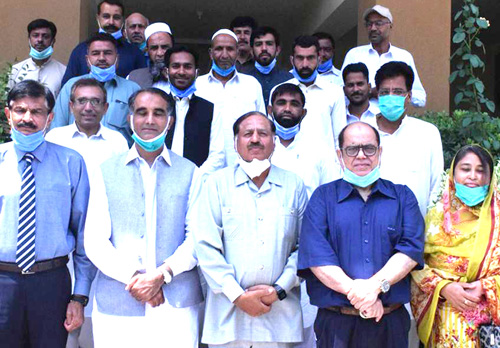Staff Reporter
Karachi
The government should realize the enormity of the challenges facing agriculture and make efforts to overcome them to ensure food security and avoid expensive spillover effects on the country’s social, economic and political system, speakers at a workshop said.
There has been no significant impact of Covid-19 on the agriculture sector which recorded a remarkable growth of 2.67 percent in 2019-20 compared to 0.58pc growth achieved last year except for cotton and sugarcane crop, said Dr Murtaza Mughal, President of the Pakistan Economy Watch (PEW) and Convener FPCCI Central Standing Committee on Insurance.
Speaking to the workshop organized by the Rural Development Foundation (RDF), has said that water scarcity, substandard seed and fertilizers and recent locust outbreak resulted in heavy losses to the main crop production areas in Balochistan, Punjab, and Sindh provinces.
Over 115,000 hectares of crops including wheat, oilseed crops, cotton, gram, fruits, and vegetables, besides grazing field have been damaged and another wave of the locust is also expected while federal and the provincial governments are too busy to do something serious about it, he added.
Dr. Murtaza Mughal said that the agriculture sector has the capacity to not only produce for the domestic population but to have surplus production for exports which can contribute towards foreign exchange earnings for which development of rural areas, filling productivity gaps and improving value addition is imperative.
The former government launched the much-needed food security policy towards the end of its tenure but the current government has so far not started implementing that policy for attaining sustainable agricultural growth and ensuring food security of a rapidly growing population, he said.
Director RDF Brig (retd) Aslam Khan said that that the incumbent government has rolled out an agricultural revival package, but with less input from Sindh, the country’s second-largest food-producing province which is a matter of grave concern.










